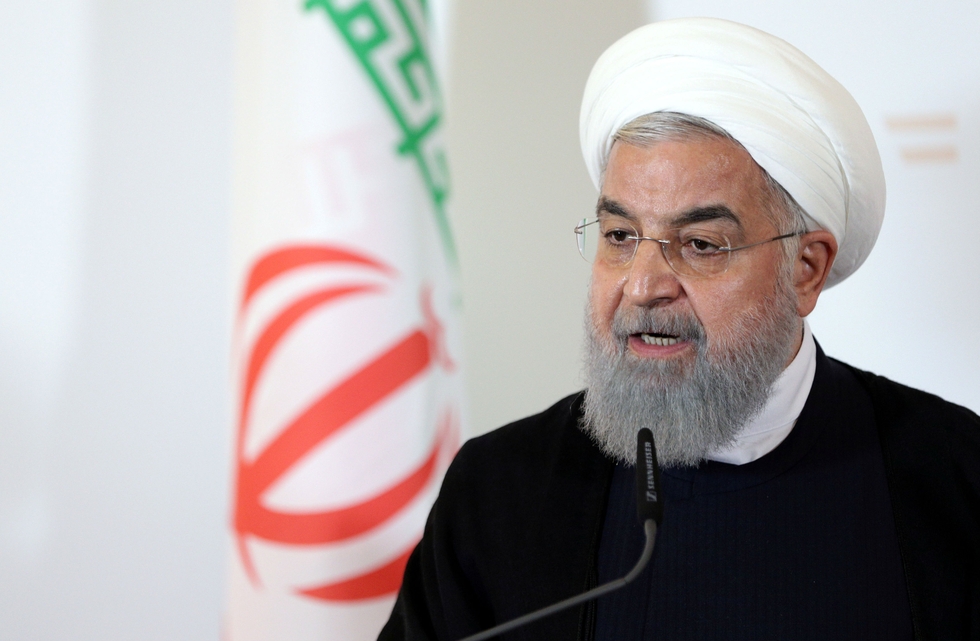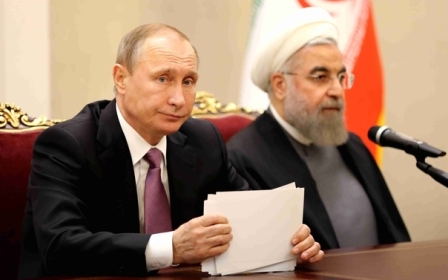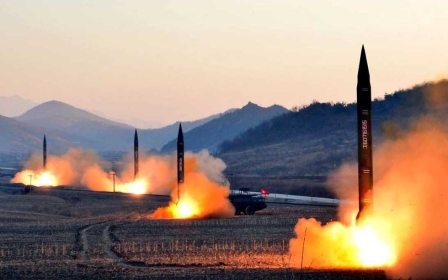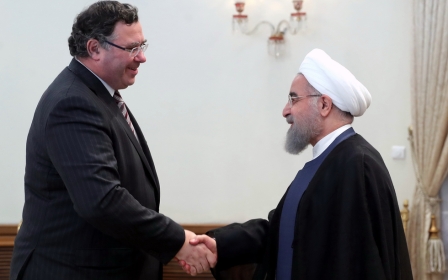Rouhani: US isolated on Iran sanctions, even among allies

Iranian President Hassan Rouhani claimed the United States is more isolated than ever over the issue of sanctions against Tehran, even among its allies, in remarks carried live on state television.
Speaking on Saturday after meeting the heads of parliament and the judiciary, Rouhani appeared to be trying to ease popular concerns fuelled by US President Donald Trump's decision in May, over the objections of allies, to pull the US from the nuclear deal signed between Tehran and world powers in 2015.
Trump re-imposed US sanctions that had been suspended in return for controls on Tehran's nuclear programme, effectively barring many multinational firms from doing business in Iran.
The likely return of US economic sanctions has triggered a rapid fall of Iran's currency and protests by bazaar traders usually loyal to the government, the Reuters news agency reported.
"Today, we are in conditions in which the United States is more isolated than ever over the sanctions issue," said Rouhani.
"America's illegal actions... have even isolated it among its own allies as we just saw," he said, apparently referring to protests held in Great Britain against Trump's visit there on Friday.
"The government pledges to the people that there will be no problems for the country in terms of energy, transportation, basic goods and production," the Iranian president said.
"The illegal logic of the United States is not supported by any of the international organisations," Rouhani said.
Many importers and exporters in Iran have complained they do not have enough currency to enable trade with foreign countries.
But Rouhani said Iran would ensure exporters and importers have "the necessary currency".
US rejects French request on Iran
Rouhani's comments came a day after French Finance Minister Bruno Le Maire told Le Figaro newspaper that the US had rejected a French request for waivers for its companies operating in Iran that Paris sought after Trump exited the Iran nuclear deal.
Paris had singled out key areas where it expected either exemptions or extended wind-down periods for French companies, including energy, banking, pharmaceuticals and cars.
French officials had expressed little hope for securing the waivers, which were critical for oil and gas major Total to continue a multi-billion-dollar gas project in Iran and for carmaker PSA Group to pursue its joint venture .
"We have just received Treasury Secretary Steve Mnuchin's response: it's negative," Le Maire told Le Figaro in an interview published on Friday.
Le Maire said Europe needed to react quickly and protect its economic sovereignty.
"Europe must provide itself with the tools it needs to defend itself against extra-territorial sanctions," Le Maire added.
Trump's sanctions are aimed at pressuring Iran to negotiate a new agreement to halt its nuclear programmes that might include Tehran's regional activities and ballistics development.
In particular, Washington wants to curtail the oil exports that are key to Iran's economic revival. Speaking at a news conference in Brussels on Thursday, Trump said he expected economic "pain" to force Tehran to seek an agreement with the US.
"I know they're having a lot of problems and their economy is collapsing. But I will tell you this, at a certain point, they're going to call me and they're going to say, 'Let's make a deal,' and we'll make a deal. They're feeling a lot of pain right now."
Earlier this month, Rouhani appeared to threaten to disrupt oil shipments from its neighbours if Washington pressed ahead with trying to force countries to stop buying Iranian oil.
Middle East Eye propose une couverture et une analyse indépendantes et incomparables du Moyen-Orient, de l’Afrique du Nord et d’autres régions du monde. Pour en savoir plus sur la reprise de ce contenu et les frais qui s’appliquent, veuillez remplir ce formulaire [en anglais]. Pour en savoir plus sur MEE, cliquez ici [en anglais].




